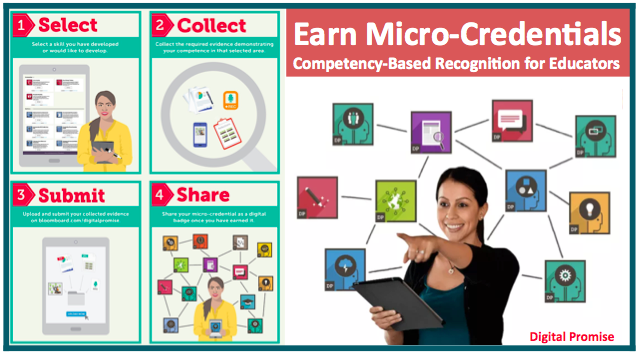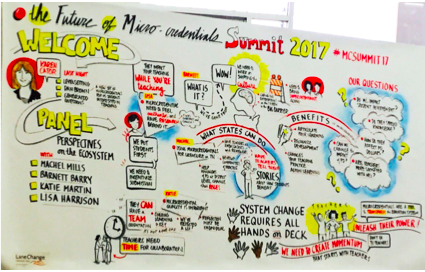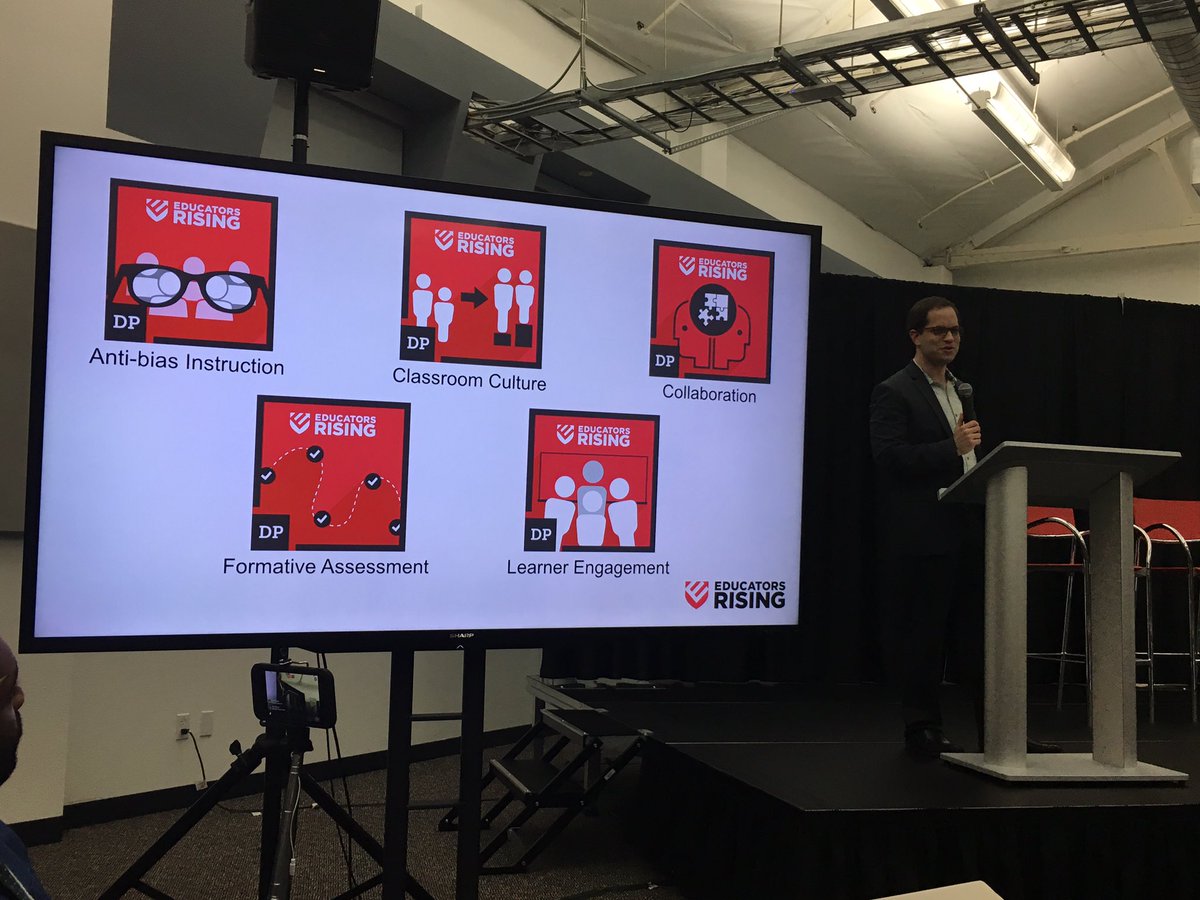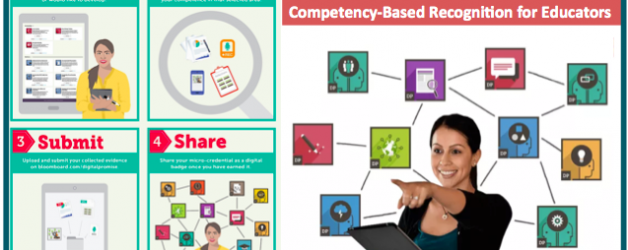
Don’t you think that now is the time to change traditional “sit and get” professional development and move to personal professional learning opportunities? Teachers are learners, too. The “one size fits all” has got to go and micro-credentials provide a process that supports teachers and impacts teaching practice.
Digital Promise has built an innovative system for educators to be recognized for the work they already do with their kids. I feel honored to be involved with the move to micro-credentials for several years and have participated in several of the summits including the latest one January 9 and 10, 2017. As an assessor for the micro-credentials, I have personally seen how teachers are embracing this process. They are documenting and showcasing learning and then getting credit for it or revising what they are doing and submitting again. Teachers want to share the learning happening in their classrooms.
Digital Promise does more than the micro-credentials by providing research, examples, case studies and more. I see the potential of micro-credentials and am honored to be included in this valuable work. The summit started with a charge by Digital Promise CEO Karen Cator @kcator to the participants to help define the work and the need to move beyond defining challenges to actively pursuing solutions for the ecosystem. Notes were compiled by an amazing visual artist from LaneChange Consulting that captured the excitement happening at the summit.
What I learned from this experience and past summits is that there is always more to learn. One thing I was not aware of was a program called Educators Rising. Dan Brown, Co-Director, shared the story of how this program provides opportunities for young people to explore what it means to be a teacher. The micro-credentials embed them in the process where they experience deep learning with a mentor. Wow!

Educator Rising’s mission is to cultivate highly skilled educators by guiding young people on a path to becoming accomplished teachers, beginning in high school and extending through college and into the profession. They just released 5 micro-credentials for young aspiring teachers-to-be. Yes — starting in high school. The 5 micro-credentials they offer can support all teachers:
- Anti-Bias Instruction
- Classroom Culture
- Collaboration
- Formative Assessment
- Learner Engagement
Through the micro-credential process, high school and college students are involved in internships with practicing teachers and their learners.
If the micro-credentials help high school and college students explore the teaching profession, then just imagine how they can support teachers and impact future practice. The summit brought educators and organizations together from around the country who are using the micro-credentials.
Kettle Moraine School District (KMSD), located in Wales, Wisconsin, is committed to cultivating academic excellence, citizenship, and personal development in all their students. Pat DeKlotz @pdeklotz, Superintendent of KMSD, along with several educators shared their story how they are embracing the micro-credentials.
Educators at Kettle Moraine School District support the district’s commitment to personalized learning by earning “Deeper Learning” micro-credentials, which support them in empowering their students to think critically and work collaboratively in order to solve real-world problems. Teachers also design and submit micro-credentials for PD credit in their district.
This post is just the beginning of a series of posts that will include stories, strategies, resources, and examples of personal professional learning. I welcome any feedback or comments. Thank you! Barbara




[…] Personal Professional Learning through Micro-Credentials | Rethinking Learning – Barbara Bray […]
[…] Digital Promise offers micro-credentials to provide competency-based recognition for professional learning that provides teachers with the opportunity to gain recognition for skills they master throughout their careers. The micro-credentials provide teachers a new way of demonstrating evidence of learning through the eyes of their learners. They share examples of work and reflections from learners along with their own reflections. Read more about Personal Professional Learning through Micro-Credentials. […]
[…] Personal Professional Learning through Micro-credentials […]